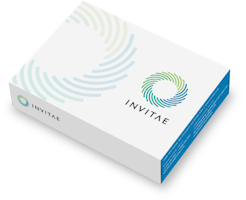
Invitae Rare Carbohydrate Disorders Panel
Test code: 06160 •
Test description
The Invitae Rare Carbohydrate Disorders Panel analyzes the FBP1 and SLC5A1 genes. Pathogenic variants in FBP1 lead to a rare carbohydrate disorder fructose-1,6 bisphosphatase deficiency. Pathogenic variants in SLC5A1 lead to glucose-galactose malabsorption (GGM).
This panel is useful for the diagnosis of patients whose clinical symptoms or biochemical findings indicate rare carbohydrate disorders. Newborns and infants may present with life threatening symptoms. Genetic testing of these genes may confirm a diagnosis and help guide treatment and management decisions. Identification of disease-causing variants provides accurate risk assessment and carrier status of at-risk relatives.
Ordering information
Turnaround time:
10–21 calendar days (14 days on average)New York approved:
YesPreferred specimen:
3mL whole blood in a purple-top EDTA tube (K2EDTA or K3EDTA)Alternate specimens:
Saliva, buccal swab, and gDNA are also accepted.Learn more about specimen requirementsRequest a specimen collection kitClinical description and sensitivity
Clinical description:
Individuals affected with fructose-1,6-bisphosphatase (FBPase) deficiency typically experience a first episode of metabolic decompensation before the age of two years. Metabolic crises are triggered by fever, decreased food intake, or consumption of fructose containing food and are characterized by hypoglycemia and lactic acidosis. Metabolic crises may also cause hepatomegaly, acidoketosis, hyperventilation, dyspnea, irritability, tachycardia, somnolence, hypotonia, coma, seizures, and brain damage.
Infants affected with Glucose-galactose malabsorption (GGM) experience severe neonatal diarrhea and dehydration due to a defect in glucose and galactose transport across the intestinal brush border. Symptoms include glycosuria, weight loss, increased bowel sounds, distended abdomen and irritability or lethargy. If treated with carbohydrate-free formula, individuals recover quickly and have normal growth and development. Tolerance to carbohydrate-containing diet improves gradually over time and most individuals are able to tolerate regular carbohydrate-containing diets by their twenties.
Assay information
Invitae is a College of American Pathologists (CAP)-accredited and Clinical Laboratory Improvement Amendments (CLIA)-certified clinical diagnostic laboratory performing full-gene sequencing and deletion/duplication analysis using next-generation sequencing technology (NGS).
Our sequence analysis covers clinically important regions of each gene, including coding exons and 10 to 20 base pairs of adjacent intronic sequence on either side of the coding exons in the transcript listed below, depending on the specific gene or test. In addition, the analysis covers select non-coding variants. Any variants that fall outside these regions are not analyzed. Any limitations in the analysis of these genes will be listed on the report. Contact client services with any questions.
Based on validation study results, this assay achieves >99% analytical sensitivity and specificity for single nucleotide variants, insertions and deletions <15bp in length, and exon-level deletions and duplications. Invitae's methods also detect insertions and deletions larger than 15bp but smaller than a full exon but sensitivity for these may be marginally reduced. Invitae’s deletion/duplication analysis determines copy number at a single exon resolution at virtually all targeted exons. However, in rare situations, single-exon copy number events may not be analyzed due to inherent sequence properties or isolated reduction in data quality. Certain types of variants, such as structural rearrangements (e.g. inversions, gene conversion events, translocations, etc.) or variants embedded in sequence with complex architecture (e.g. short tandem repeats or segmental duplications), may not be detected. Additionally, it may not be possible to fully resolve certain details about variants, such as mosaicism, phasing, or mapping ambiguity. Unless explicitly guaranteed, sequence changes in the promoter, non-coding exons, and other non-coding regions are not covered by this assay. Please consult the test definition on our website for details regarding regions or types of variants that are covered or excluded for this test. This report reflects the analysis of an extracted genomic DNA sample. In very rare cases, (circulating hematolymphoid neoplasm, bone marrow transplant, recent blood transfusion) the analyzed DNA may not represent the patient's constitutional genome.
You can customize this test by clicking genes to remove them.
Primary panel
Question about billing?
Find answers